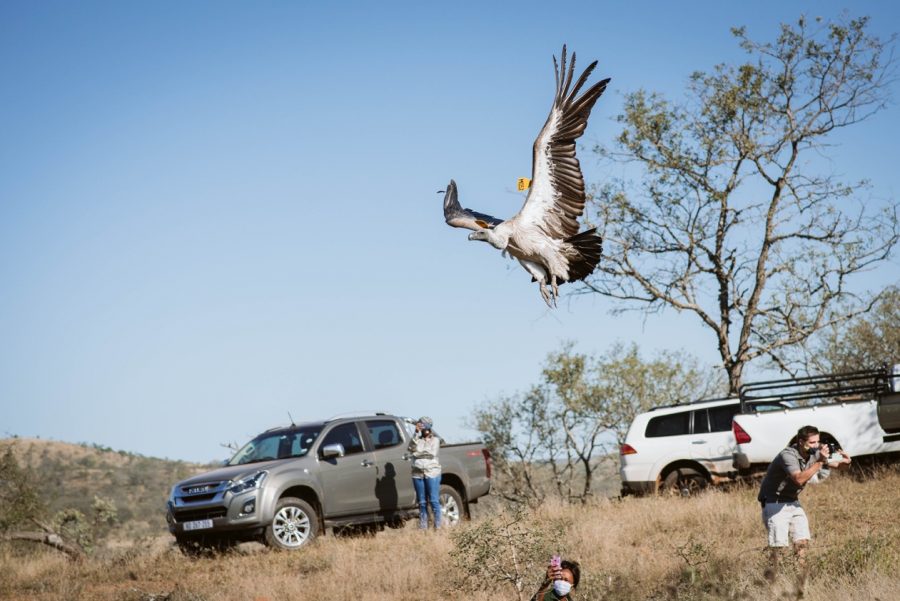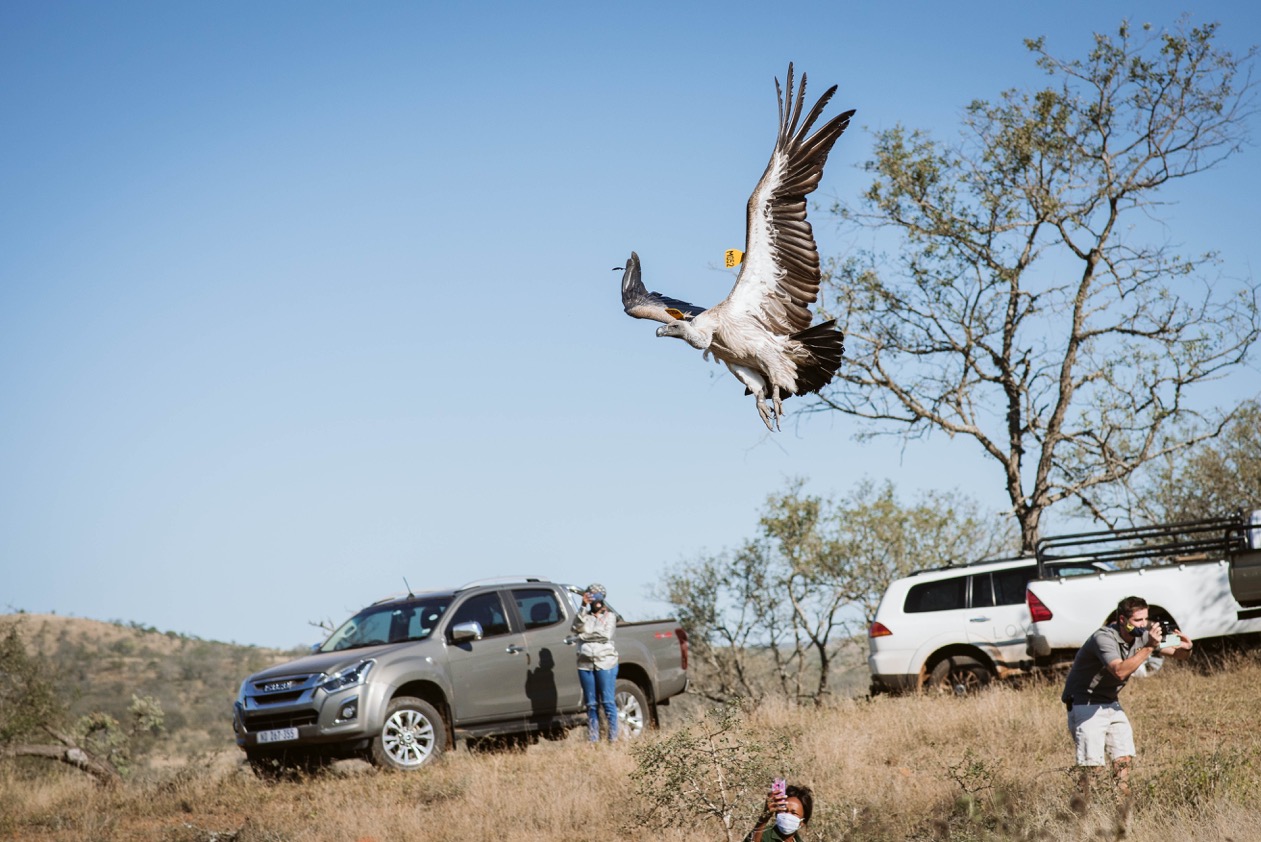
WATCH Critically Endangered Vultures Released After Mass Poisoning in South Africa
Three Critically Endangered African White-Backed Vultures have been successfully rehabilitated and released back into the wild by Wildlife ACT, Ezemvelo KZN Wildlife and Raptor Rescue; through the Zululand Vulture Project. (See video at bottom of page.) The release last week, following fantastic collaborative efforts, came after a spate of poisoning incidences ravaged Zululand last year. […]

Three Critically Endangered African White-Backed Vultures have been successfully rehabilitated and released back into the wild by Wildlife ACT, Ezemvelo KZN Wildlife and Raptor Rescue; through the Zululand Vulture Project. (See video at bottom of page.)

The release last week, following fantastic collaborative efforts, came after a spate of poisoning incidences ravaged Zululand last year.
Vultures were hit hard in 2019, with four confirmed cases of mass poisonings in the northern part of KZN alone, resulting in a minimum of 56 birds confirmed poisoned.
However, fast reporting of suspicious activity by property managers to the Zululand Vulture Project, ensured swift response from Wildlife ACT’s Emergency Response Team and the rescue of 4 African White-Backed Vultures and 1 Lappet-Faced Vulture. In addition to this, the fast decontamination of the poison sites prevented hundreds of other vultures, and other species, being killed.
The few poisoned (but still living) birds were rushed down to Raptor Rescue in Pietermaritzburg. Here they were treated and rehabilitated over nine months, to ensure they get the best chance at a successful return to the wild.
“They were put on fluids, treated with activated charcoal and atropine, then kept for several months for monitoring with ongoing vet checks and blood panels,” says Ben Hoffman from Raptor Rescue.
Wednesday was the big day for the release of the rescued birds. Manyoni Private Game Reserve was the scene for this exciting chapter in the recovery of 3 of these birds. Each bird was equipped with a GPS backpack and wing tags which will help Wildlife ACT and the Zululand Vulture Project maintain a close eye on the birds’ movements and behaviour. This post-release data is vital for understanding the full success of these rescue and recovery operations.
Having been given the best chance of survival, one by one, these rescued Vultures were set free to soar once more in Zululand’s open skies.
PHOTOS: Rescued vultures released back into the wild (watch video below)





African populations of vultures are experiencing rapid declines and most species are now at risk of extinction. The IUCN Red List of Threatened Species currently classes 39% of vulture species as critically endangered (IUCN 2017).
“Vultures face many threats – poisoning is just one of them. There are also power lines and other energy infrastructure, habitat change and loss, and lack of food that all play a role,” says Chris Kelly, Wildlife ACT Director – Species Conservation.
KwaZulu-Natal (KZN) has significant populations of vultures, with this specific project focusing on the tree nesting species, including White Headed, African White Backed and Lappet Faced vultures.
These species are listed as critically endangered and endangered respectively (IUCN 2018).
Poison use (and misuse) is a major contributor to vulture deaths and population declines have been reported across much of KZN. This use of poisons by poachers can wipe out huge numbers at once and, since 2001, almost 70% of breeding pairs in this northern KZN breeding cluster have vanished.
“A vulture takes between 5 to 7 years to reach maturity, and they lay 1 egg a year. That’s 2 birds, that need 2 years and a 100% success rate just to replace themselves,” explains Ben.
To support Wildlife ACT’s crucial Vulture Conservation Programme, please visit: https://www.givengain.com/cause/2682/campaigns/17129/
